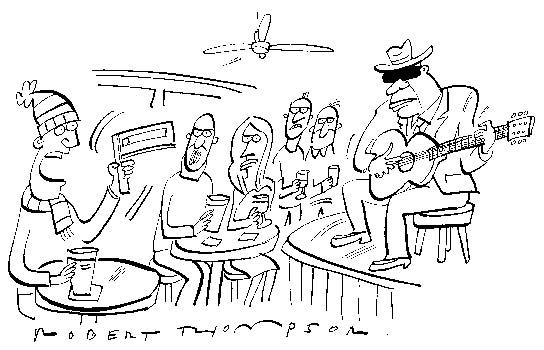Trust a radio critic, she who is paid to listen, not to rely on the wireless set in her car for information when stuck on a highland road miles from anywhere in a jam that stretches far into the horizon in both directions. But when a forest fire closed the road we were travelling on back across the mountains I realised I hadn’t a clue how to retune our southbound radio from the preset buttons and so couldn’t find the local station, Moray Firth Radio. After three hours, in the gloaming, we turned back along the road we had travelled. If only we had waited — or listened to MFR. Ten minutes later, the road reopened, exactly as MFR had announced to their listeners, as we ruefully discovered only the next day after an expensive overnight stay.
I should have known that MFR would have more useful info than the Northern Constabulary; the quality of its traffic info is how the station attracts and keeps its listeners. If we’d hired a car, the radio would have been preset to MFR by the rental company, almost as a safety precaution. So next time you leave the house for a long trek, check out the wavelengths of the local stations en route. There are times when only local will do.
‘Nurses aren’t kind,’ declared the journalist Christina Patterson in a shocking exposé of her experience of NHS treatment for breast cancer. She was speaking at the Royal Society of Arts in the first of a new series of Four Thought last week (Radio 4, Wednesdays), the 15-minute ‘live’ lectures on subjects designed to provoke (produced by Giles Edwards). She knows her subject too well, having had six operations in three different hospitals over the last eight years. Some nursing has been kind, overwhelmingly so, but too much of her experience has been, as she revealed, nothing short of cruelty.
On the first morning after her first operation she was told that if she wanted breakfast she would have to get it herself. This meant clipping various drips and drains on to a drip trolley and then dragging herself along the corridor to the kitchen, which she could only do by leaning on the trolley. She just about managed to butter herself a slice of toast when she got there, but the giant teapot was too much. ‘No one cared,’ she told us, ‘whether I got a cup of tea or not.’
Most people who’ve experienced the NHS close-up, either themselves or with relatives, will have similar tales to tell. Yet how few of us complain. Patterson used her 15 minutes to tell her story with breathtaking frankness. She also tried to explain why the nursing profession has gone so badly wrong. The training in classrooms rather than on the wards as the profession sought to become academic; the disappearance of the matron and her replacement by chief executives, not nurse specialists; the new shift systems (with two long shifts instead of three shorter ones). But these changes do nothing to justify the disappearance of Nightingale’s angels.
The work is demanding, admitted Patterson, especially when dealing with the unruly public (as waiters, call-centre clerks, taxi-drivers, shop assistants also experience). But, she concluded, ‘if you’re employed to do it, and can’t do it, do something else.’
I doubt whether many nurses will have heard what she had to say since Four Thought is scheduled at that awkward slot between supper and bedtime when most of us are either slumped in front of the telly or catching up with things that must be done before tomorrow. We all have our favourite times for listening. Until Listen Again came along, I had given up on Book at Bedtime because it was too tempting to stay in, not to miss an episode, so gripping could those 15 minutes of storytelling become. Now I often switch off because the choice of books is so contrary. New, untried novels might sound enticing but rarely fulfil the brief for that time of night.
This week and last we’ve been given John Boyne’s just-out novel The Absolutist (he made his international name with The Boy in the Striped Pyjamas). Set just after the first world war, Boyne’s novel takes us into territory once bracingly explored by Pat Barker in her brilliant trilogy of books about the trenches, homosexuality and the rough fate meted out to conscientious objectors. But he gives us nothing new in a plot that seems stale and with language that’s too often banal: ‘I wanted nothing more than to be left alone with my thoughts.’ ‘I stare at him unable to find words to express my indignation.’
At another time of day these platititudes might not matter; at bedtime the words count more than the plot. It’s the telling of the story, not the story itself that binds the listener to the radio. There have been a few stories by classic authors in recent weeks (Mary Shelley’s Mathilda and Virginia Woolf’s Flush), but nothing with the enthralling magic of Turgenev’s On the Eve, read by Claire Bloom back in 1983.






Comments